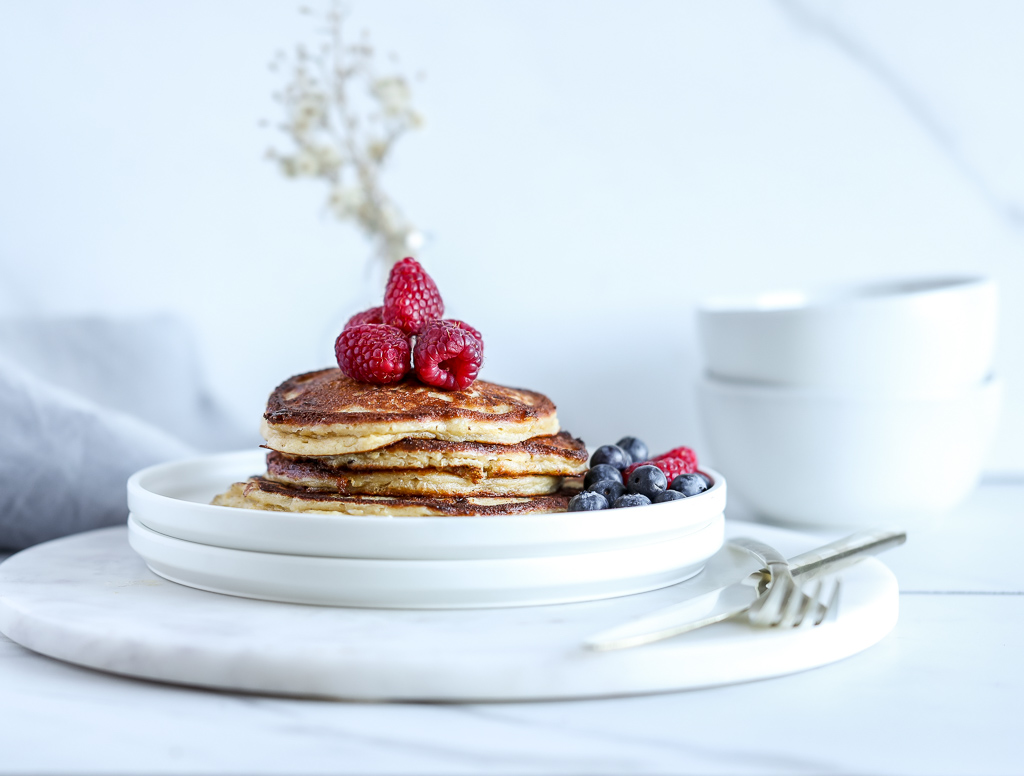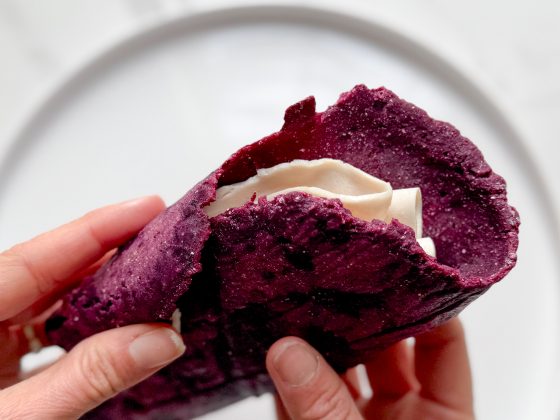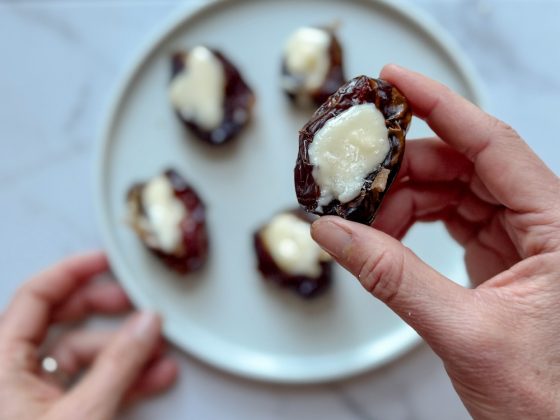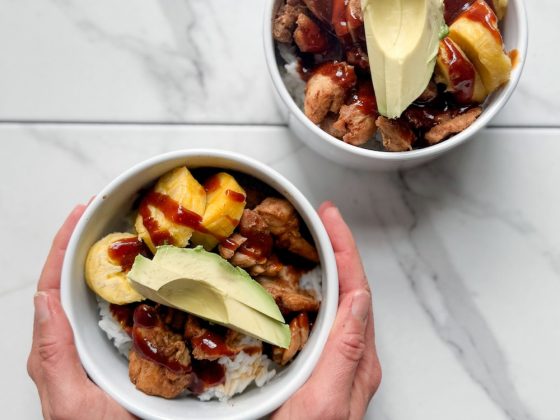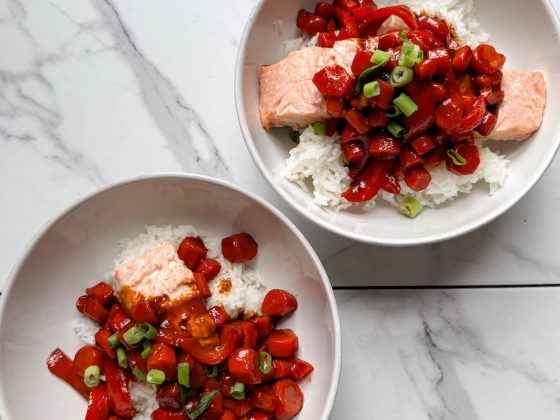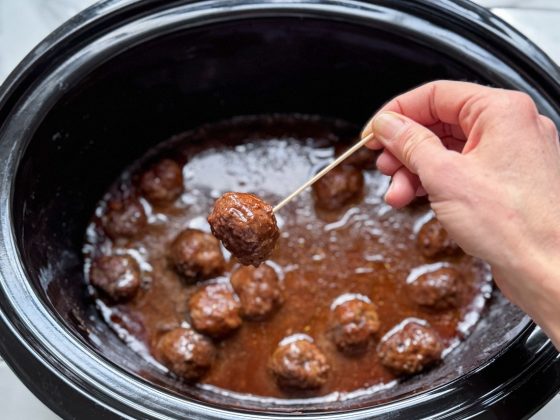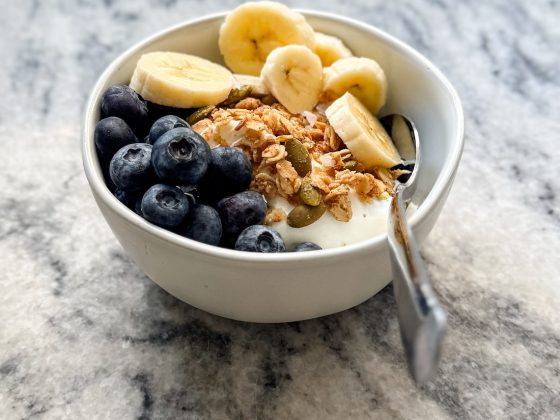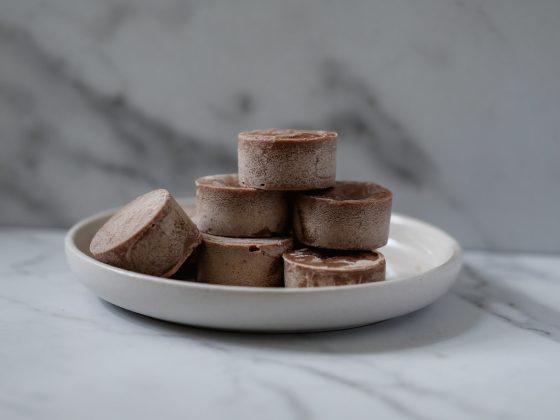As hard as I have tried, I just don’t like eggs in the morning. I can more easily eat them for lunch or even dinner, but when it comes to my morning meal, I want something on the sweeter side. With the conversation increasing around protein, especially the importance of getting about 30 grams for breakfast, I have been playing around with other plant-based sources.
When I got pregnant however, I knew that I needed to add eggs into my diet. Not only are they a great, high quality source of protein, but the nutrition in egg yolks is amazing for fetal development. So I thought what if I disguise the eggs as a carb? Incorporating them into pancakes, crepes, breads, and muffins are ways to reap the benefits of eggs without the aversion.
What makes these pancakes high in protein?
There are a few ingredients that contribute to these pancakes’ high protein content:
- Eggs
- Full-fat cottage cheese
- Protein powder
The combination of these ingredients contribute about 70 to 75 grams of protein to the batch (depending on the brands of cottage cheese and protein powder that you use). While the entire recipes yields 12 to 14 pancakes, that is till roughly 20 to 25 grams of protein about about 4 pancakes. And that isn’t even taking the other ingredients into account. Although they may lend a negligible amount, there is still plant-based protein found in rolled oats and ground flax.
Are these protein pancakes low in sugar?
The recipe calls for a ripe banana, which I think adds a natural sweetness. Again, depending on what protein powder you use (I suggest Be Well by Kelly or Truvani brand for vegan), there could be monk fruit which also helps to sweeten. I do enjoy maple syrup on occasion, but it tends to spike my blood sugar, so I would rather top my pancakes with berries and peanut butter for flavor.
If you prefer, you could always omit the banana, or use 1/2 cup of pumpkin puree for a substitution that is lower in fructose.
How to make these protein pancakes dairy-free
Cottage cheese is having a moment, and while its nutritional benefits make it an amazing addition to these pancakes – especially in terms of the protein content – I also understand dairy doesn’t sit well with everyone. I was dairy-free for years, until I slowly added it back in and realized it was agreeing with me. If you would like to make these pancakes dairy-free, you could substitute coconut yogurt or another dairy-free yogurt of your choice for the cottage cheese.
Planning and prep
When it comes to pancakes, patience is key. There have been times when I would flip too soon, only to have my pancakes fall apart. Waiting until you start to see the edges brown and air bubbles on top are you ready to flip (about 5-6 minutes for the first side I’d say). Other than that, there is not much to plan or prep! Also know that the batter tends to thicken as you cook, so it may be more viscous as you are pouring your last pancakes than with the first. Just some food for thought!
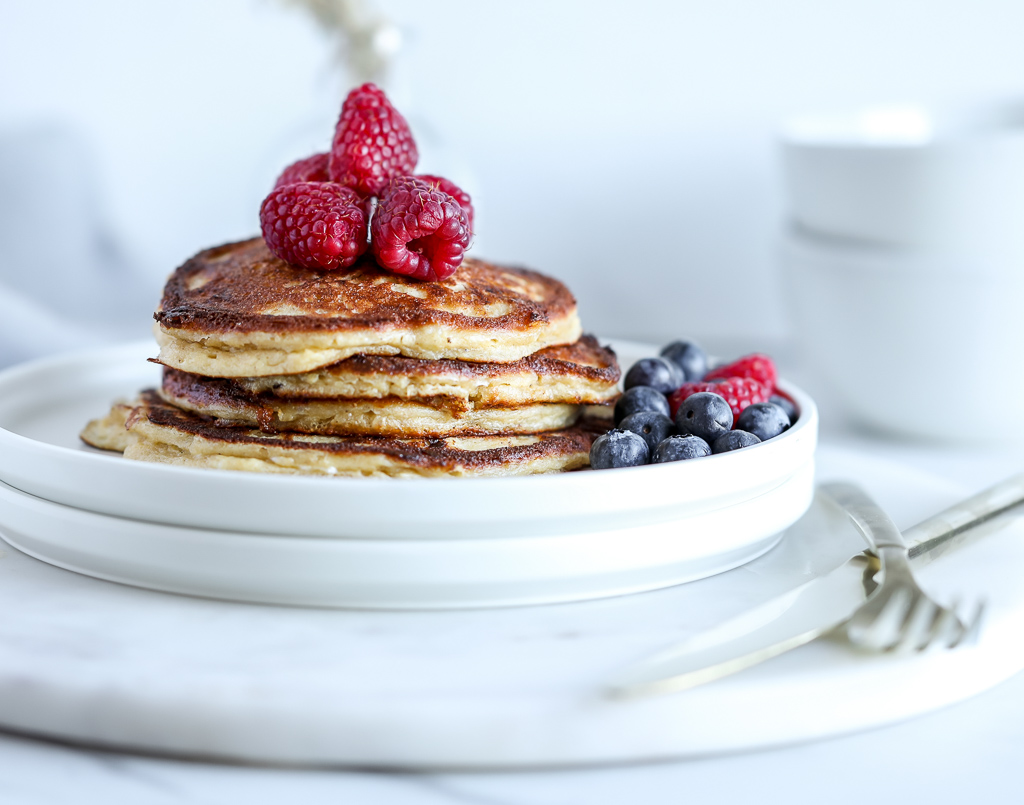
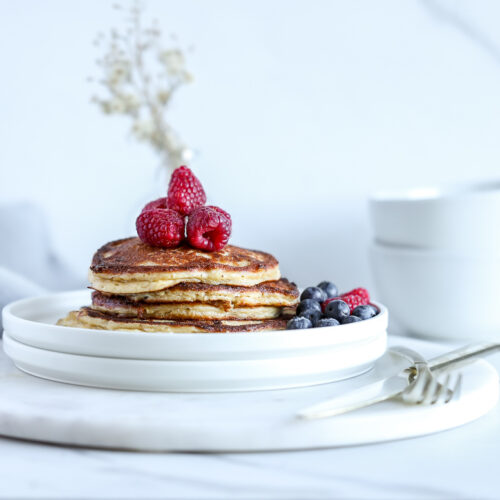
First Trimester Protein Pancakes
Equipment
- High-speed Blender see note
- mixing bowl
- whisk
Ingredients
- 4 eggs
- 1 cup cottage cheese
- 1/3 cup almond milk or milk of choice
- 1 1/2 cups gluten-free rolled oats
- 1 banana
- 1 scoop vanilla protein powder
- 2 tablespoons ground flax or chia seeds
- 1 teaspoon cinnamon
- coconut oil for cooking
Instructions
- Add all of the ingredients except for the cooking oil to a high-speed blender. Blend on high until smooth and creamy and a pancake batter is formed.
- Heat coconut oil in a large skillet over medium heat. Pour batter of desired size into the skillet to form pancakes (about 1/3 cup). Cook 5 to 6 minutes until the edges start to turn golden brown and air bubbles form. Flip, and cook 3 to 4 more minutes or until done. Transfer cooked pancakes to a plate or cutting board, and continue to do this until batter is used up.
- Add toppings of choice. Serve warm.

